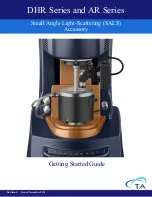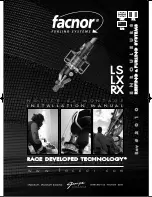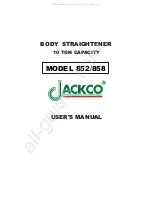
SECTION 14—CONTRACTURE FOOTPLATE OPTION
Part No 1125027
87
Solara
®
/Spree GT
™
Contracture Assembly Angle Adjustment
NOTE: For this procedure, refer to FIGURE 14.3.
1. Perform one of the following:
• Bilateral Contracture - Remove the mounting bolt and locknut used to lock the
angle adjustment of the contracture assembly.
• Contracture Platform - Remove the two mounting bolts and locknuts that lock the
angle adjustment of the contracture assembly.
2. Lift the contracture support up/down to achieve the desired angle.
3. Perform one of the following:
• Bilateral Contracture - Align the mounting hole in the contracture support with
one of seven mounting holes on the angle adjustment bracket.
• Contracture Platform - Align the upper support mounting hole with one of four
mounting holes in the angle adjustment plate.
4. Reinstall the mounting bolts (s) and locknut(s) to lock the angle adjustment of the
contracture assembly. Securely tighten.
FIGURE 14.3
Contracture Assembly Angle Adjustment
Using the Optional Quick-Release Pin
WARNING
If not installed at time of shipment, the quick-release pin MUST be installed by a
qualified technician only, using a 1/8-inch pop rivet.
NOTE: For this procedure, refer to FIGURE 14.4 on page 88.
NOTE: This procedure applies to the bilateral contracture footplate only.
NOTE: The quick-release pin replaces the mounting screw that is used to lock the angle adjustment
of the contracture support.
Bilateral Contracture
Contracture Platform
Angle Adjustment
Bracket
Mounting Holes
Locknut
Contracture
Support
Mounting Bolt
Mounting
Bolts
Upper
Support
Locknuts
Angle
Adjustment Plate
Hole #
4
3
2
1
Angle














































